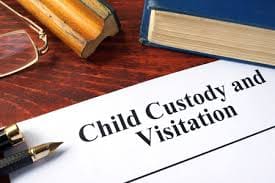Tips for Using a Mediator to Create a Co-parenting Plan
About 90% of child custody cases are resolved without a battle in court. However, keep in mind that a judge still needs to approve the settlement agreement.
Should You Use a Mediator?
In most situations, it’s a good idea for divorcing spouses to use a mediator. The exception is if your spouse is abusive. Informing the court of the abuse is important to help protect yourself and your child. If you want to try mediation, you do have the option of being in separate rooms during it to help you feel safe and more at ease with expressing yourself.
As long as both you and your spouse are willing to participate in the mediation process, it’s less expensive than battling it out in court. When a mediation fails, you will have to go to court. Thus, it’s best if your spouse is willing to do their part in a peaceful mediation. You can look over these tips together to make sure that both of you negotiate in a respectful and fair manner.
Set aside any hard feelings for the sake of saving money and walking away from the divorce in the best situation possible. When couples get too caught up in revenge during the divorce process, they often find themselves in a worse financial situation after the divorce.
Avoid Saying “Never” or “Always”
Ultimatums automatically put the other person on the defensive, so you should avoid using them in communication. Rather than saying “you never do this” or “you always do this,” phrase it as “I feel upset when you do this.” It’s also better to avoid starting sentences with “you” because it tends to make the other feel defensive, which is why the example begins with “I” instead of “you.”
Compromise Comes with Mediation

Go into mediation understanding there will be give and take. Before the mediation, write down what’s most important to you and what you’re willing to compromise. This will help you keep clarity during the discussion of what truly matters to you. If you butt heads on an issue that’s important to you, listen to the mediator’s suggestions on finding a compromise that both of you can be happy with. This dispute resolution tool is only effective when both participants are willing participants and want to find a win–win deal.
Be Willing to Discuss Finances and Future Relationships
When it comes to negotiating a co-parenting plan, be aware that finances and future relationships may be discussed. You and your spouse want to make sure that your child is in a safe environment if they will be traveling between your residences. If you were to refuse to discuss these issues because of privacy, it will interfere with a successful mediation. Remember that court is an even less private place where people from the public will hear the details of your case.
Keep the Discussion Focused on Co-parenting
Don’t make comments regarding other aspects of the divorce. Stay focused on resolving your co-parenting issues only. You can schedule another mediation if you still have other aspects of your divorce to negotiate.
Ask for a Short Break If You Need One
It’s important that you don’t allow your emotions to get the best of you. It’s okay to politely ask for a short break when you feel your emotions becoming too much for you. Focus on taking slow, deep breaths and think about things that make you happy to help yourself calm down. Remind yourself of the benefits of staying calm, and imagine a positive outcome, then return to the discussion renewed. Be understanding and compassionate if your spouse needs a short break too. Don’t take it personally.
Consult with a Divorce Lawyer Before the Mediation
The settlement agreement that you sign after a mediation is legally binding. It’s a good idea to consult with a divorce lawyer before your mediation because they can advise you on when it’s best to give and take based on what’s important to you. They can also give you an overview of what to expect during mediation. You could even choose a divorce lawyer as your mediator if you and your spouse want to, but both of you should still consult separately with your own attorneys. You don’t want to feel unhappy after the agreement is signed. Consulting with a lawyer helps give you more reassurance that you’ll be satisfied.
Using a mediator to create a co-parenting plan is a great way to come up with an agreement that works with both of your schedules and preferences. Mediators are experienced with the different types of custody schedules that parents can use. They are also skilled at facilitating discussions and calming down a situation that’s about to get out of control. Contact the Law Office of Joanne Kleiner in Montgomery County at 215-886-1266 if you’re interested in learning more about the process.



